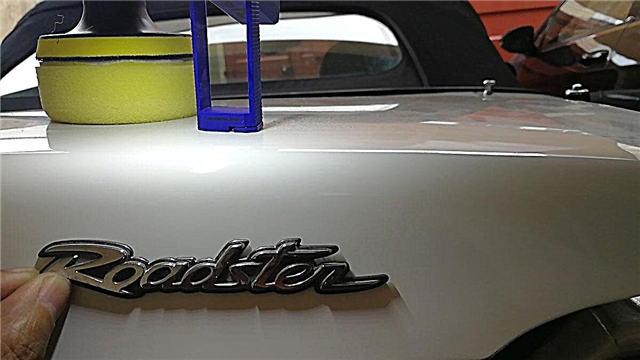When it comes to the Second World War, which affected almost every country in the world, only a few peoples are mentioned. Russia, England and the United States will definitely be named, but many other countries are unfairly forgotten.
The peoples of the world have participated in this war, and even if they are forgotten, their contribution can be greater than it seems. Also take a look at the article 10 Contenders for Victory in World War III.
10.Australia fired the first allied shot
On September 4, 1939, the morning after Great Britain declared war on Germany, the ship sailed to Fort Nipin Point. The personnel of the fort demanded to identify themselves, but was refused. They began to panic, thinking it was a German ship heading for the war on Australia. The fort fired a warning shot in the bow of the ship, and it was called the first Allied shot in the Second World War.
The shot itself is not important. The ship ended up being Australian, so it wasn't even an enemy ship. But the cannon batteries were. Coincidentally, the same battery fired the first shot in World War I. The Australians continued to shoot. By the end of the war, 27,000 Australian soldiers had lost their lives.
9. Canada built the third largest fleet on Earth
At the start of World War II, Canada did not have a massive military force. Despite its size, Canada's population was only 11 million, the navy had only 15 ships, and the air force consisted of 235 pilots. When Germany invaded Poland, Canada began to prepare. In those days, Canada invested $ 20,000,000 to improve military training.
It trained nearly 50,000 pilots, built 800,000 trucks, 471 warships and 16,000 aircraft. They sent 730,000 men to the war. Canada's contribution to the training of British pilots is invaluable. Surprisingly, at the end of the war, Canada had the third largest fleet in the world.
8.India has the largest army of volunteers
When India called on its people to fight, they responded. 2.5 million people volunteered to participate in World War II, forming the largest volunteer army in the world. Not all of them fought at the front. Some worked in factories or defended the country from air raids.
Those who fought did not spare themselves. One group, called the Fourteenth Army and consisting of the forces of Britain, India, Africa, recaptured Burma. It was a turning point in the war, with 30 Indian soldiers receiving the Victoria Cross, Britain's greatest medal of courage.
7. Malays fought on the side of England against Asia
In 1942, Japan advanced on Singapore, an important strategic point for the British army. The local military base in England was the access point to Asia, without which it would have been at a huge disadvantage. However, the decisive battle was fought not by British soldiers, but by the Malays. A man named Adnan Saidi and his squad held back the land at Opium Hill, determined to fight the Japanese to the last drop of their blood.
First, they were approached by people with turbans on their heads, dressed in British-Indian uniforms. They seemed like friendly support from India, but Saidi noticed something was wrong. These men marched in lines of four, while the British usually walked in three. They were Japanese soldiers in disguise. Saidi's soldiers opened fire and the attack was halted.
The Japanese were confused and massively went on the offensive. Saidi's squad fought until the bullets ran out, and then the soldiers continued to fight with their bayonets. All but one were killed. The Japanese devastated the land, the British lost their key base in Asia. Still, the Malays did not surrender it without a fight.
6. Switzerland was not completely neutral
The Swiss did not just sit around waiting for the war to break out. Officially, they remained neutral, but in fact, they played their part. They did not want the war to cross their borders and defend their airspace. They shot down 11 German planes crossing their air borders and heading for France. The Germans were furious. They demanded an apology and threatened to take revenge. The Swiss, however, blamed them in return and demanded that flights through their territory be stopped.
Several other bombs destined for Germany have landed on Swiss soil, including a US bombing that killed 100 people. The Americans insisted it was an accident, but the Swiss strongly disagreed. In the end, the Americans dropped so many bombs on Switzerland that they had to pay $ 14 million in damages.
5. Kenya fought against Italy and Japan
About 100,000 Kenyans have joined the ranks of the Royal African Archers. At that time, they were the largest part of the African army of Great Britain, made up 1/3 of all soldiers, which played a huge role in the war in Africa. The Kenyans defended their land from Italian incursions and helped the royal riflemen stop incursions in East Africa.
After that, they moved to Madagascar and Burma. During the war, Kenyans faced racism. Black soldiers were paid less than whites and were unable to advance in service. Yet they found ways to play around with stereotypes about them. One soldier admitted in an interview that they frightened the Japanese by saying they were cannibals, ready to taste them.
4.Poland was the first to hack Enigma
Alan Turing got all the glory, but in fact he was the second to crack the German Enigma code. The first was Marian Rejewski, a Polish cryptographer. Already in 1932, Poland began working on breaking a complex German code. Working with documents stolen by French spies, the Polish team tried to duplicate the enigma code - and it worked.
Rejewski was able to guess the code and made the first copy. Unfortunately, the Germans realized that their code had been cracked and increased their security tenfold. The Poles got stuck, and in 1939, realizing that an offensive was inevitable, they sent their developments to England to continue their work and prepare for the worst. Alan Turing managed to crack a more complex code, but he could not have done it without the work of Marian Rejewski.
3. Finland restrained the offensive of a million Russians
X
In 1939 Finland entered World War II. The Soviet Union tried to conclude a deal and gain control over several Finnish islands, but when Finland refused, he brought his troops into its territory. The Soviet army was huge. A million soldiers marched through Finland, and the numerical superiority was 1: 3.
Finland turned to Britain and France for help, but no one responded. Finland lost, but caused great damage to the USSR, the country lost 320,000 people, while Finland only 70,000. They had to surrender some of their territories, but they inflicted significant damage on the Soviet army.
2. Almost every soldier in one Armenian town received a medal
The small Armenian mountain village Chardakhli played a huge role in the Second World War. Of the 1,250 residents enrolled in the Soviet army, 853 were awarded medals, 12 became generals, and 7 became heroes of the Soviet Union. The two men made it to the top echelons of the Soviet army. Hamazasp Babajanyan became the chief marshal of the armored forces, and Ivan Baghramyan became the marshal of the Soviet Union. By the end of the war, the town had the largest number of awarded fighters in the country. Almost every man has returned home with a medal on his chest - or never returned at all.
1.Russians killed 8 out of 10 German soldiers
Of course, Russia's role in the war is never forgotten. It is well known that Russian participation was very important, but many do not realize how much. We have heard a lot of boasting that the US has changed the course of the war, but in fact, the Soviet Union should be given its due. On his account 80% of German losses.The USSR entered the war late. And yet, if you count from 1941, ours inflicted 95 percent of the damage to the Germans.
During the Battle of Stalingrad, Russian soldiers killed 20,000 Germans daily. The Russian army was not only large, but also gifted. Nine of the ten deadliest snipers in World War II were from the USSR. The Soviet Union did not just participate in the war with Germany - it practically destroyed it.
We recommend watching:
10 fun facts about World War II from Professor Google Shocking details of military operations and methods of warfare. The consequences of a destructive war, which have not yet been eliminated.



